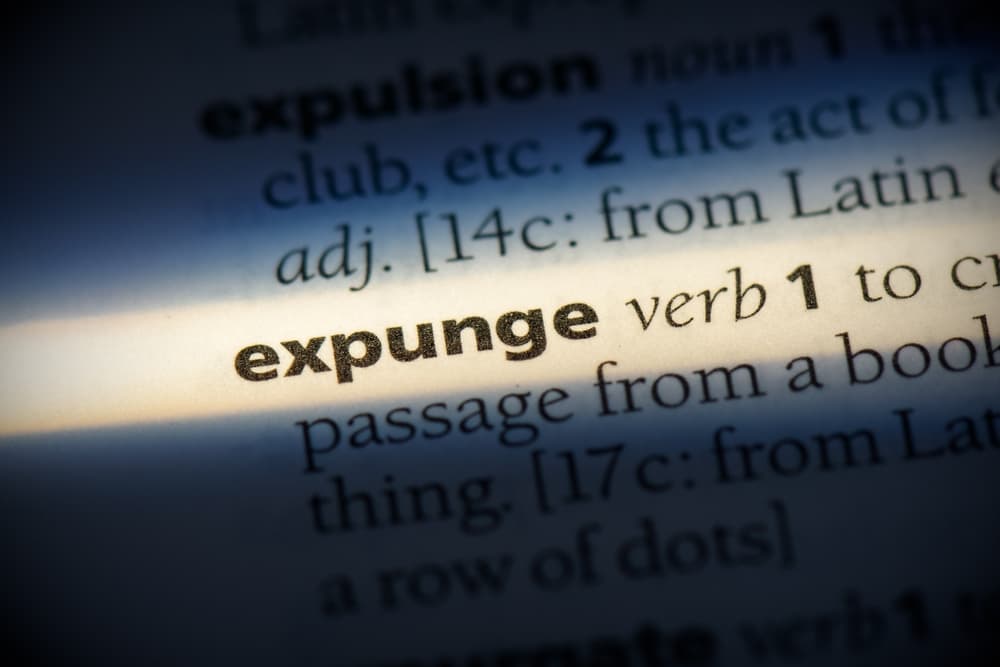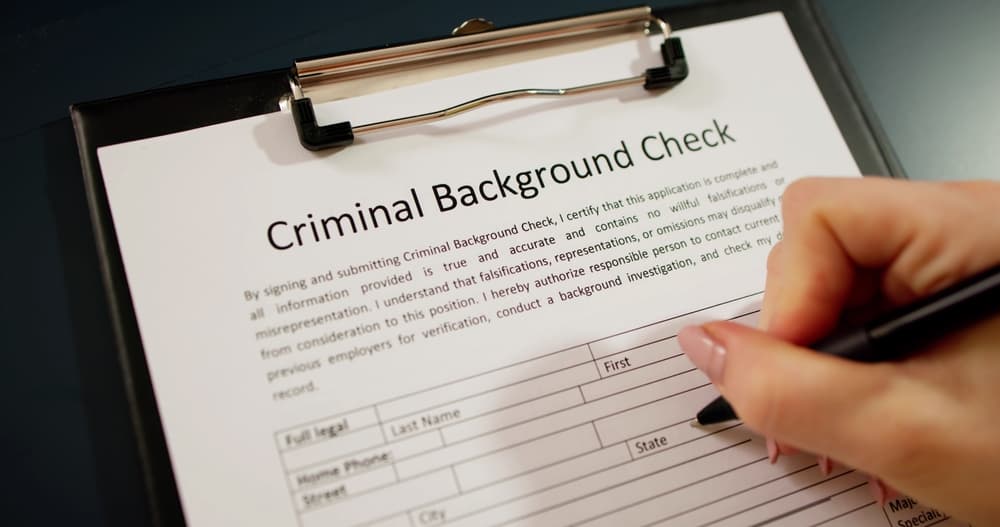For many juveniles in Abilene, San Angelo, and other parts of Texas, a brush with the law doesn’t have to define their future. Mistakes made during youth can carry significant consequences, but Texas law recognizes the importance of giving young people a second chance.
In certain situations, juveniles may be able to seal or expunge their criminal records, removing obstacles preventing them from leading successful adult lives.
An Abilene expunction attorney with experience handling juvenile cases can explain the differences between sealing and expunging records, how juvenile cases are handled differently from adult cases, and outline the steps required to pursue these processes under Texas law.
Juvenile vs. Adult Criminal Cases in Texas

Before diving into the details of sealing and expunging records, it’s important to understand how the juvenile justice system in Texas differs from the adult criminal system. Juvenile cases are handled with a focus on rehabilitation rather than punishment. The Texas Family Code governs how juveniles are treated, emphasizing education, correction, and reintegration into society.
In Texas, individuals younger than 17 are generally considered juveniles. However, juveniles as young as 14 can be transferred to adult court for certain serious crimes. Most juvenile cases are heard in juvenile court, which has a more informal setting than adult court and aims to help juveniles avoid long-term consequences from their mistakes.
For juveniles in Abilene, this process often involves interactions with local agencies like the Abilene Police Department, the Taylor County Detention Center, and the Taylor County Courthouse, where juvenile cases are handled. In San Angelo, juveniles might deal with the Tom Green County Juvenile Justice Center or the Tom Green County District Court.
The Importance of Sealing or Expunging Juvenile Records
Having a criminal record, even from juvenile offenses, can create challenges down the road. A record might make finding a job, getting into college, or even securing housing harder. Fortunately, Texas law provides pathways to either seal or expunge juvenile records under specific circumstances.
What is the difference between these two options?
- Sealing a Record: Sealing a record means that the court will close access to the record, making it unavailable to the general public. This ensures employers, landlords, and most educational institutions won’t see the juvenile offense when conducting background checks. However, law enforcement or government agencies can still access sealed records under certain conditions.
- Expunging a Record: Expunction, on the other hand, means that the record is permanently erased. Once a juvenile record is expunged, it’s as if the crime never happened. The individual can legally deny the offense occurred, and even law enforcement agencies won’t have access to the expunged records.
Differences in Sealing and Expunging for Different Offenses

Understanding which offenses are more likely to be sealed versus expunged is crucial for anyone navigating the juvenile justice system. The type of crime, whether a misdemeanor or felony, often determines eligibility for these legal remedies.
Misdemeanors: Generally Easier to Seal or Expunge
Juvenile misdemeanors are among the most common offenses that can be sealed or expunged. Misdemeanors are generally considered less severe crimes and often involve minor offenses such as:
- Shoplifting or petty theft
- Vandalism
- Disorderly conduct
- Underage drinking
For these types of offenses, juveniles can typically have their records sealed after completing any court-imposed requirements, such as community service or probation. The sealing process makes the records inaccessible to the public, allowing the individual to move forward without the past affecting their future opportunities.
Expungement is also possible for minor misdemeanors, especially in cases where the charges were dropped or the juvenile was acquitted. However, sealing is the more likely outcome if the juvenile is convicted.
Expungement in these cases may still be possible but often requires more stringent conditions, such as proving that the conviction is no longer in the public's interest to remain on record.
Non-Violent Felonies: More Challenging but Possible
Non-violent felony offenses, while more severe than misdemeanors, may still be eligible for sealing or expungement, depending on the circumstances. Common examples of non-violent felonies include:
- Drug possession
- Fraud
- Burglary (without violence)
Sealing the record for these offenses is possible, but the process is more complex and may require a longer waiting period. Juveniles who successfully complete probation, stay out of trouble, and demonstrate rehabilitation may be able to petition the court to have their records sealed.
Expungement for non-violent felonies is more difficult. Typically, expungement is only available in cases where the charges were dismissed, the juvenile was found not guilty, or the case was resolved without a conviction. In cases where the individual was convicted of a non-violent felony, expungement is generally not an option, but sealing remains a viable alternative.
Violent Felonies: Limited Opportunities for Sealing or Expunging
More serious crimes, particularly violent felonies, face greater legal hurdles when sealing or expunging records. Violent felonies can include:
- Aggravated assault
- Robbery
- Murder or manslaughter
- Sexual assault
Texas law takes a stricter approach to violent felony offenses, and in many cases, juvenile records related to these crimes cannot be sealed or expunged. The rationale is that public safety interests may outweigh the individual’s right to privacy in cases involving serious violent behavior.
For example, a juvenile convicted of murder or sexual assault is unlikely to be granted relief through sealing or expungement, even if they have completed their sentence and rehabilitation efforts.
However, there are exceptions and the specifics of each case matter. For instance, if a violent felony charge was dismissed or the juvenile was found not guilty, the individual may still be able to petition for expungement. Likewise, juveniles who committed violent offenses but have demonstrated exceptional rehabilitation may have their records sealed, though this remains rare.
Deferred Adjudication and Its Impact on Sealing and Expungement
Texas juvenile courts often use deferred adjudication, which allows the juvenile to avoid a formal conviction if they meet certain conditions, such as completing probation or other court-ordered programs. If the juvenile successfully completes deferred adjudication, they are often eligible to have their records sealed, even for certain felonies.
Expungement, however, remains a challenge for individuals who have gone through deferred adjudication. In most cases, deferred adjudication leads to sealing, but the offense must be dismissed entirely for expungement to be considered.
Juvenile Sex Offender Cases: A Special Category
Sex-related offenses in juvenile cases are treated with caution in Texas. While many of these cases result in a juvenile being required to register as a sex offender, the state does provide opportunities for certain juveniles to seek relief from this requirement. Juvenile sex offenders may petition the court to have their records sealed, depending on the severity of the offense and whether they have successfully completed rehabilitation programs.
Expunging juvenile sex offender records, however, is generally not an option, particularly in cases involving violent or repeated offenses. The Texas legal system prioritizes public safety in these cases, making it much more difficult to erase such records from existence.
The Expunction Process in Texas

Expunging a juvenile record requires a formal petition to the court. Your expunction attorney will take you through the following steps:
Filing a Petition
A petition for expunction must be filed in the county where the arrest occurred. This would likely be in the Taylor County Courthouse for juveniles in Abilene, and in San Angelo, it could take place in the Tom Green County District Court.
Serving the Petition
Once the petition is filed, copies must be served to all relevant agencies, including the Taylor County Sheriff, the Abilene Police Department, and other law enforcement agencies involved in the arrest.
Court Hearing
After the petition is served, the court schedules a hearing. The judge reviews the case at this hearing and determines whether the expunction is warranted. If approved, the court issues an order to destroy the record.
Steps to Take After Juvenile Records are Sealed or Expunged
While sealing or expunging a record can offer a fresh start, individuals must be proactive in managing their post-process responsibilities. Your juvenile defense lawyer will make sure the process is fully completed and help you understand your rights moving forward. They can help you with steps including:
Confirming Compliance with Agencies and Authorities
After a court orders a juvenile record to be sealed or expunged, you must verify that all relevant agencies, such as law enforcement, courts, and other institutions, have complied with the order. The court will often notify these agencies, but your lawyer can help you follow up.
- Police Departments: Contact agencies like the Abilene Police Department or other local law enforcement to ensure the records have been removed from their databases.
- Courts: Check with local courts, such as the Taylor County Courthouse or Abilene Municipal Court, to confirm that juvenile records have been sealed or expunged according to the court order.
- Juvenile Detention Facilities: If a record involves detention, contact the Taylor County Detention Center to make sure the juvenile’s detention history has been addressed according to the court’s directive.
Without confirmation, records may remain accessible, potentially undermining the intent of sealing or expungement.
Obtaining Copies of the Sealing or Expungement Order
Once the process is complete, individuals should obtain and keep copies of the official order sealing or expunging their records. This order is a legal document that can be presented if questions arise in the future, such as during background checks or job applications.
Having a copy of the order ensures you have proof that your record has been cleared and helps avoid any confusion if outdated information surfaces.
Understanding Your Rights When Discussing Past Offenses
Once your juvenile records are sealed or expunged, Texas law gives you the right to deny the existence of the record in most circumstances. This means that, in most cases, you are not required to disclose the sealed or expunged offense. However, there are some nuances to keep in mind:
- Job Applications: In most situations, if your records are sealed or expunged, you can legally state that you do not have a criminal record. Employers running background checks should not be able to access sealed or expunged juvenile records. However, for certain government jobs or positions that require a high level of security clearance, expunged or sealed records may still be accessible.
- College Applications: Many educational institutions will not have access to sealed or expunged records, so you may not need to disclose any past offenses during the application process. However, some schools may have exceptions, especially for programs that lead to professional licensure.
- Professional Licenses: For individuals pursuing careers in licensed fields, such as law, medicine, or education, it's important to check whether the licensing board will have access to sealed or expunged juvenile records. Sometimes, even if the records are sealed, certain professions may require disclosure.
Understanding these exceptions and your rights allows you to confidently navigate situations where your criminal history might be questioned.
Update Personal Information with Relevant Entities
Once your records are sealed or expunged, updating your information with relevant agencies or institutions is also a good idea. For example:
- School Records: If you were disciplined in school based on the offense, request that the school update or amend their records to reflect the sealed or expunged status.
- Online Records: If the offense or case has been mentioned in online databases or news reports, it may be worth contacting websites or news organizations to request the removal of these references. While expungement orders do not automatically require third-party entities to remove such content, some websites will comply with requests to remove outdated information.
Monitor Background Checks for Accuracy

Even after your record has been sealed or expunged, it’s important to monitor background checks to ensure the cleared records don’t mistakenly appear. Many employers, landlords, or organizations run background checks as part of their vetting process; occasionally, outdated information can surface.
If an expunged or sealed record appears in a background check, it may be a sign that an agency has not fully complied with the court’s order. In such cases, you may need to:
- Provide Your Sealing or Expungement Order: If you encounter this issue, you can present a copy of your official sealing or expungement order to the background check agency and request that the error be corrected.
- Request a Correction from the Background Check Company: You have the right to request that companies running background checks remove outdated or incorrect information regarding your juvenile record.
Staying vigilant can prevent any unnecessary complications and ensure that your sealed or expunged record remains private.
Exercise Caution in Discussing Past Juvenile Offenses
Although your juvenile records may have been sealed or expunged, it's important to be cautious when discussing your past with others. Even though you may legally deny the existence of your record, openly sharing details of the offense with employers, colleagues, or friends could inadvertently harm your reputation or opportunities.
If you are asked about your juvenile history and your records are sealed or expunged, it's typically in your best interest to refrain from volunteering any unnecessary information. Trust the legal process and understand that you are not obligated to reveal sealed or expunged records.
Consult Your Attorney if New Legal Issues Arise
If you find yourself in legal trouble again, it's important to inform your lawyer about your sealed or expunged records. While those records are not accessible to the public, they may still be relevant in certain legal contexts.
Consulting with your lawyer ensures they completely understand your situation and can provide the best defense. Your lawyer can also help you determine whether your sealed or expunged records could impact future legal proceedings.
Sealing or expunging a juvenile record in Texas provides a valuable second chance, allowing individuals to move forward without the burden of a past offense. However, taking proactive steps after the process is complete is essential to ensure that the benefits of record sealing or expungement are fully realized.
By following up with agencies, understanding your rights, and keeping track of your legal documents, you can make the most of the fresh start provided by the Texas juvenile justice system.
Why You Should Seek Legal Help for Sealing or Expunging Juvenile Records
The process requires a thorough understanding of Texas law and the ability to meet specific legal requirements. By working with an experienced expunction lawyer like David M. White, individuals can ensure their case is handled properly. Having a knowledgeable advocate on your side can make all the difference in achieving a successful outcome.
Contact the Law Offices of David M. White to Protect Your Future
Sealing or expunging a juvenile record can offer a fresh start for individuals who made mistakes in their youth. With the right legal support, this process can provide a second chance at life without the shadow of a criminal record.
If you or your child is dealing with a juvenile criminal record in Abilene, San Angelo, or the surrounding areas, consider contacting the criminal defense lawyers at Law Offices of David M. White. Together, we can work to protect your child’s future.
Our legal team serves people throughout the state, primarily focusing on West Texas. Call our Abilene office at 325-437-3311, our San Angelo, TX office at 325-221-4421, or contact us online.
